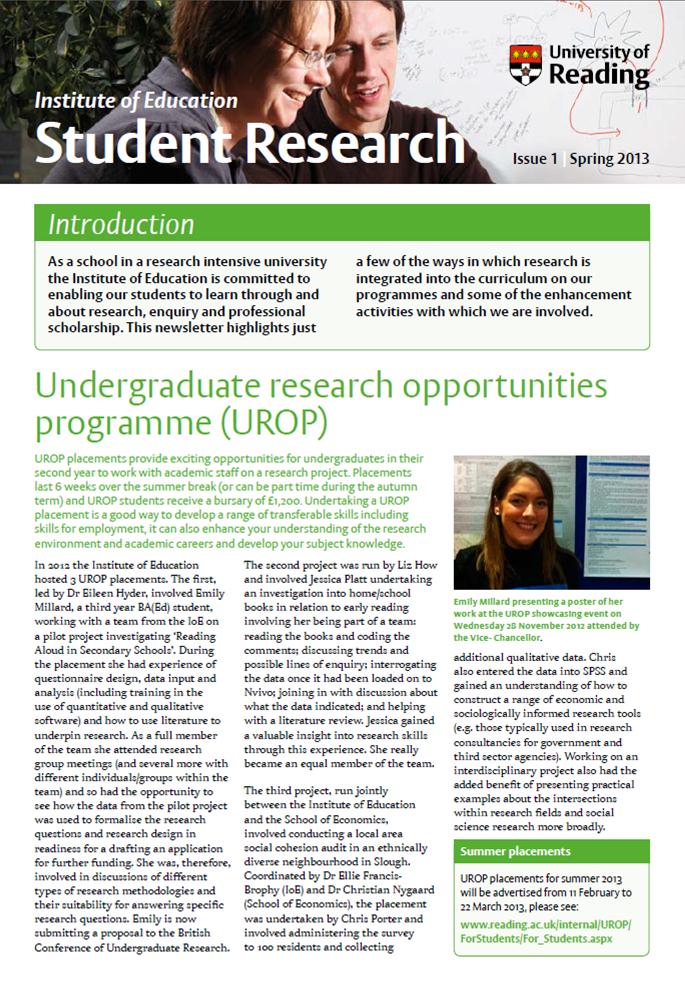
If you are thinking about a career in the classroom, why not teach computer science?
Tony MacFadyen, Director of Enterprise at the University’s Reading Institute of Education, explains why you should get with the programme
Imagine a world without computers.
From having no spreadsheets to help us budget and regularly queuing in the bank because there’s no ATM, to no lifesaving early diagnosis of disease and no internet which allows us to . . . well to do seemingly almost anything.
A very different world!
The way we use computers, and what we use them for, has evolved dramatically over the last 15 years.
However, the government and industry have argued that the skills being taught in Information and Communications Technology (ICT) classrooms have not kept up, leaving children unprepared for the new world they face.
Enter Michael Gove’s recent announcement of a major reform to the current ICT curriculum.
The changes, including the introduction of computer science in schools (now as part of the EBacc), aim to better prepare young people for progression in education and a professional career.
Current ICT lessons, he said, were ‘demotivating and dull’ and schools need to focus more on getting pupils to learn how to design ‘apps’ and learn to code.
Indeed he has support from the likes of Bill Gates and Ian Livingstone (co-founder Games Workshop). Many people have argued that the previous ICT curriculum needed improvement as pupils need the skills of computer science and algorithmic thinking to give them the best chance of successful careers in every area of modern life.
However there is a problem as countries like the US and Japan have stolen a march on the UK.
Government statistics show that only 35 per cent of ICT teachers are specialists, compared with more than 80 per cent for core subjects such as maths and English.
Who is going to teach these new skills? Perhaps it will be you.
Last year the University of Reading launched a nationwide project that aims to meet the growing need for computer science teachers in schools. The project includes giving current teachers ideas for introducing key computing concepts in lessons.
University specialists have hosted conferences and given workshops in schools that have helped teachers meet the demands of the new curriculum, and now the University has been awarded funding to train the next generation of computing teachers.
This month, the University’s Institute of Education, one of the leading teacher trainers in the country, is launching a new Subject Knowledge Enhancement course (SKE) in computer science to complement its PGCE (Sec) Computer Science course.
SKEs are free and offer a route into teaching for those wishing to train as teachers and possess good teaching qualities, but whose degrees do not provide them with the subject knowledge required.
The Computer Science Enhancement course is a three-and-a half-month, full-time course taken prior to teacher training with bursaries available to eligible candidates.
It is designed for people with a strong interest in computer science and good general teaching qualities who need to develop their subject knowledge before commencing secondary teacher training.
Those with an appropriate degree can apply straight to the PGCE.
The SKE is taught by computer science teachers alongside experts from the University’s School of Systems Engineering.
Trainees will develop knowledge and skills in computing and learn through a variety of teaching methods, including workshops, guided private study, group work, student presentations and programming projects.
The current economic climate means many people face uncertain futures over their jobs or are struggling to find work.
Computer Science teaching is an opportunity for people to take that step into a new and fulfilling career. Enrolling on the SKE or PGCE (Sec) means you receive the best in training in computer science. This will provide you with the confidence and skill to teach the new curriculum and join a highly skilled workforce needed for our future success. For more details or to enrol contact Janet Thomson, head of SKE, at j.thomson@reading.ac.uk or (0118) 378 2656.
Source: http://www.getreading.co.uk/blogs/andanotherthing/s/2132872_first_person_could_you_teach_computer_science





